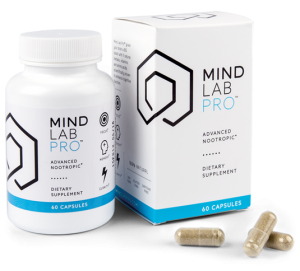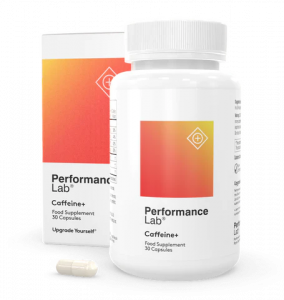Summary: Best Nootropics for Writers
The best way to write is to simply write. Of course. However, if you can make writing easier and make the words flow more readily, you would, right? Why wouldn’t you? With the right nootropics, writers can obtain better control on their writing flow (and, really, any other creative task). Mostly, the idea is to alleviate anxiety and sharpen focus, and the best nootropics for the job include L-theanine (+ caffeine), L-tyrosine (+ B-vitamins), Rhodiola rosea, citicoline, Bacopa monnieri, ashwagandha (+ caffeine), and a few more spicier options (see below).
For more on my favorite nootropic stacks in general, hit the following link:
It’s a triumphant moment when a writer finally gets to say it: “I am a writer.” But in this day and age of bloggers, freelance writers, technical writers, copywriters, substackers, TWEETERS, etc., what does the title “writer” even mean anymore? Do all writers share similar writerly needs and ambitions?
Do all writers share similar writer hang-ups? Do technical writers experience writer’s block the same way creative writers do?
Not really. However, the same nootropics that can benefit the novelist may also help the B2B copywriter or even web designer. Because fundamentally it’s a creativity problem that, aside from simply doing the work (there’s no way around this: the best way to get over writer’s block is to simply write), can be better overcome with more or less the same range of nootropics, with some variation depending on your preferences — e.g., stim or non-stim, natural or synthetic, etc. etc.
With that in mind, let’s take a look at writing and writer’s block to see how writers can get the most out of their nootropics.
Page Contents
The Writer’s Guide to Nootropics

Writers are either thinkers or feelers, or — if they’re any good — they’re both. What I mean by this is that a good writer may rely on either logic or intuition, yet the best writers straddle that line between high-order thinking and emotional, bodily “gut” feelings. Their instincts. Because (and I’m saying this as a nootropic geek) the mind isn’t everything when it comes to writing.
There’s an erotic dimension to writing as well. Just ask the poets. (Or me *wink*)
Before getting into the *needs* of writers, I should reiterate: writing gets done by writing. One of the biggest mistakes writers (or wannabe writers) can make is thinking that there are loads of special prerequisites to churning out “good” writing. Certainly, many writers have their rituals. But let’s not over-romanticize the profession: writing is work. And the best way to approach work is by working.
Of course, certain substances and supplements can make work much easier. (E.g., pre-workout supplements.) And also, of course, the work requirements of a writer differ by writing professions. The cognitive output of a technical writer doesn’t exactly match the creative development of a novelist. (And if you write for The New York Times or The Guardian, then you don’t have to do any thinking at all!) Writers rely on various mental and emotional constructs to get the job done, including (but not limited to):
Memory
The ability to juggle several ongoing thought processes largely depends on a writer’s memory. And I’m not simply referring to long-term memory — although, sure, if you’re writing your biography, then long-term memory is certainly important. But the memory most important to the writer’s day to day tasks is the short-term memory — namely working memory.
This is why some writers begin their assignments with an outline: tracing the beginning, middle, and end of a written project relieves some of the strain on the mind’s working memory, which involves remembering task-related information until the task is finished. If you’re plotting a novel, your working memory helps to align the who‘s, the what‘s, the why‘s on a per scene basis, while also mental positioning each scene in relation to the story as a whole. Writing is a total memory mind game. More on Nootropics for Memory.
Mood/Motivation
Often, it isn’t poor thinking that derails my writing but rather poor feeling. Let’s call it having a bad attitude and poor motivation. Admittedly, motivation isn’t a good metric for whether or not you’re ready to write… but if you can trick yourself into feeling motivated, I say go for it. What partly initially attracted me to nootropics was the question: Is there anything I can take to keep my emotion levels stable without transforming me into a drooling pile. The nootropic Reddit community answered: Yes. And now here I am, regurgitating info I found on the internet as if it’s my own.
For the most part, nootropics improve mood and motivation work by enhancing the brain’s catecholamine neurotransmitters, namely dopamine. This is essentially what Adderall’s all about. However, this isn’t the only bio-pathway to better mood and motivation. Stable emotions require a delicate balance of all brain chemicals and frequencies — from dopamine to serotonin, norepinephrine to GABA. If you’re a believer in brainwave entrapment, you may find non-chemical methods of altering emotional state. E.g., binaural beats have personally helped me neutralize disruptive egotistical/emotional outbreaks while writing. (I’m writing on binaural beats right now.) More on Nootropics for Motivation.
Focus/Concentration
Adderall is to nootropics what steroids is to protein. Pharmaceutical smart drugs geared towards improving focus and attention for ADD/ADHD do so by flushing the brain with an inordinate amount excitatory brain activity. It’s an awesome short-term solution that feels pretty damn good, but it’s not much of a long-term, nootropic solution. Heavy stimulants sacrifice the long-term for the short-term.
Good focus-enhancing nootropics accomplish both, sharpening natural focus and energy production in a way that boosts cognitive output now and later. Whether by enhancing the natural production of focus-boosting brain chemicals (again: catecholamines) or neuroprotective ATP synthesis, nootropics may go a long way in securing healthy focus, concentration, attention, etc. More on Nootropics for Focus.
Energy/Stamina
Motivation may push you beyond the impairments of low energy and stamina; some of the most dedicated writers possess insane, impressive levels of persistence. Yet, if you can — and you can — why not take nootropics that improve energy and stamina?
Nootropics may help cognitive energy and stamina for writers in a number of ways:
- Decreased stress and fatigue (via adaptogenic stress resistance)
- Improved cerebral circulation (for better brain nourishment)
- Enhanced mitochondrial energy synthesis and output
And, of course, eating clean and healthy, so that your brain’s nourished with proper brain fuel. If your writing workspace is littered with Wendy’s wrappers and high-sugar energy drinks, reconsider your dietary intake before relying on nootropics. More on Nootropics for Energy.
Creativity
If you Google search “Nootropics for Writers,” you’ll find several articles with headlines such as “Nootropics for Creativity” or “How to Boost Your Creativity with Nootropics,” etc., etc. This is because, for many writers, creativity is virtually synonymous with writing.
Having said that, the concept of enhancing creativity with natural nootropics is somewhat of a dubious enterprise. Sure, the whole LSD microdosing trend may help spurn creativity. And even riskier sedatives and anxiolytics that place the mind in a dreamlike, meditative state may help boost creativity, loosening the mind enough to make associations not otherwise explored with a wakeful, alert mind.
I do believe that with the right mix of calming, relaxing nootropics, better creativity may be achieved — and in a way that doesn’t compromise energy or focus.
How to Overcome Writer’s Block
What is writer’s block? Writer’s block is the roughly defined, vaguely understood inability to write.
What causes writer’s block? Ah, man, where to begin… Any number of factors may be involved in writer’s block — from anxiety and depression to unrealistic, self-imposed standards of perfection to good ol’ fashioned brain burnout. What’s especially frustrating about the writer’s block, especially if it’s motivated by anxiety or depression, is that the event of writer’s block may be self-fulfilling:
- The writer’s anxiety provokes writer’s block.
- Writer’s block provokes the writer’s anxiety.
- Round and round we go.
While often discussed in mental terms, writer’s block often manifests as physical inactivity. The writer is physically not writing. Which is why the best advice turns out to be the most obvious: just write. Anything, everything — just get something down on paper. As a writer, you have to be your own boss, and no one likes their boss. Which means that you have to be a bit of a dickhead to yourself.
Every morning, wake up, look at yourself in the mirror, and tell yourself: you’re not special, stop being so precious, and just write.
The physical action of writing may help the mind break through writer’s block.
Other writers benefit by moving around; walking. Charles Dickens famously walked roughly 20 miles per day while “writing”, as the walking process inspired the writing process. Chuck Palahniuk, author of Fight Club, views writing as an active pursuit, one that requires social interaction and movement. Ernest Hemingway wrote standing up — because he’s working when he’s writing, and who works sitting down?
Once you have all of that taken care of, all that’s really left with regards to writer’s block are the brain bio-pathways disrupting your workflow. For those, you may use nootropics to help restore and enhance the mind towards releasing all those good ideas locked up there.
Benefits of Nootropics for Writers
Not all nootropics work for writers. And some nootropics that work for some writers may accomplish the opposite for others. For example, anxiety reducing nootropics may benefit anxious, overexcited writers, but for the slow, sluggish, apathetic writers? They’ll need more of an energy boost. Even so, however which way you spin it, nootropics may benefit writers by:
- Improving emotional stability and mood balance.
- Harnessing the dopamine response towards better motivation.
- Increasing cognitive clarity and creativity.
- Amplifying energy production and stress resistance for better stamina.
- Sustaining sharper information flow for better working memory.
Again, not all nootropics work for all writers. But some stacks work so well for mental and emotional writing performance that they’re almost viewed as universal cognitive enhancers among the nootropic writing community. My favorite nootropics for writers that seem to work for many writers are listed below.
Best Nootropics for Writers
L-Theanine (+ Caffeine)
Writers love coffee, and smart writers love coffee with L-theanine.
This is due to the synergistic nootropic benefits of the L-theanine + caffeine duo. Individually, L-theanine enhances cognition by promoting alpha brainwaves, the brain frequencies associated with calm, creative thinking. It’s a unique bio-benefit, one that not only relieves anxiety (while boosting focus) but does so without sedating the mind into cognitive impairing sleepiness. L-theanine calms the mind for better mental focus and performance without the usual side effects of anxiolytics.
Then there’s caffeine, which needs little explanation or description. It’s the world’s favorite stimulant compound, increasing focus and energy — albeit jittery focus and energy. Which is where L-theanine comes into play: L-theanine removes caffeine’s jitter yet sustains the sharp energy. What’s more: research finds that the L-theanine + caffeine duo improves cognitive performance and mood beyond what each compound is capable of individually. It’s the perfect natural nootropic mini-stack for writers who need to simultaneously chill out and get in the zone. More on L-Theanine.
L-Tyrosine (+ B Vitamins)
Some writers write late, others wake up at the buttass crack of dawn to get an early start. Sometimes a big writing project forces writers into both staying up late and waking up early, with little sleep in between, as the mind churns over various approaches to the assignment. (This is one aspect of the writer as self-torturer role.) If you’re anything like me, being told to “get some sleep” does absolutely nothing for you. I don’t want to sleep, so I’m not going to sleep.
During such desperate times, I resort to L-Tyrosine,an anti-stress amino acid, to restore my mood and motivation levels. Here’s how tyrosine restoration works:
- Stress and fatigue burns the brains catecholamine chemicals.
- The brain converts L-tyrosine to catecholamines.
- L-tyrosine runs out; brain burnout kicks in.
- You take a fat serving of tyrosine, replenishing the brain’s store of catecholamine precursor, sustaining focus, mood, energy, and motivation throughout the day.
Low catecholamine activity (dopamine, norepinephrine, etc.) promotes poor cognitive performance and energy. Motivation tanks when these neurotransmitters drop off. Supplementing L-tyrosine may help keep your brain balance up-to-task, especially when paired with B vitamins,which operate as co-factors in the catecholamine conversion processes. (Plus, B vitamins help maintain a positive mood on their own. Not a bad idea to maintain your B levels, whether you’re a writer or not.) More on N-Acetyl L-Tyrosine.
Rhodiola Rosea
The best times of day to take Rhodiola Rosea include:
- The first half of the day.
- The second half of the day.
There really isn’t a bad time for Rhodiola rosea, a powerful, potent adaptogen with significant stress and fatigue reducing benefits. As one of the premier adaptogens (which are a class of substances that help the body adapt to stress), Rhodiola is a hugely popular herb among competitive individuals. Stress affects damn near everything — from muscle growth to mental clarity. Highly active bodybuilders exercise so much that the ensuing rise in stress hormones ironically diminish muscle growth. Likewise, writers who overexert themselves pick away at their cognitive fortitude with each strained thought process that goes into their writing.
Rhodiola rosea helps keep the mind active and clear.Which is why I say it’s great for all times of the day — e.g., you can take it in the morning as a get-up-and-go kickstart or in the afternoon as a keep-going boost. What it feels like: quick, feel-good clarity of the mind.
Personally, I like to supplement Rhodiola midway through a long writing assignment and/or prior to exercising. The herb essentially makes fatigue disappear — mental and muscle — allowing for me to dedicate more of my attention and brainpower to the task at hand. More on Rhodiola Rosea.
Citicoline
If Rhodiola rosea enhances cognition by resisting fatigue, Citicoline (or CDP-choline) takes a more active approach by boosting energy. As opposed to alpha-GPC and other nootropic cholines, citicoline does more than simply supply choline (although, “simply” supplying choline is an immense benefit to the brain) — it also supplies cytidine,a precursor compound to uridine.
Individually, choline and cytidine accomplish:
- Choline – increases synthesis of neurotransmitter acetylcholine, the brain chemical associated with memory, learning, and high-order cognitive processes.
- Cytidine – converts to uridine, a nootropic nucleotide with significant synaptic plasticity and brain energy boosting potential.
I’m listing citicoline as a great nootropic for writers. However, the truth of the matter is that citicoline is a great nootropic for damn near everyone. It’s a solid foundational nootropic, one that enhances the brain’s overall cognitive potential by improving the brain’s overall fuel. The brain uses ATP energy for just about all metabolic pathways involving neuronal maintenance and repair.
For writers working with multiple plot lines, assignments, tasks, etc., citicoline’s memory boosting benefits help. I greatly rely on my cholinergics to write at a higher level. More on Citicoline.
Bacopa Monnieri
When people think “Nootropics for Writers,” I’m sure many define “nootropic” as anything that will boost my writing performance RIGHT NOW. Yet, they’d be neglecting a big-time nootropic herb with their impatience, that herb being Bacopa monnieri.
While this herbal adaptogen is one of the more popular nootropic supplements, many still sleep on it because it requires a few weeks of daily supplementation to reach peak effect. You don’t want to sleep on Bacopa, because when it does reach peak effect, it accomplishes several awesome brain bio-benefits:
- Enhanced cerebral circulation.
- Increased acetylcholine activity.
- Reduced amyloid plaque build-up.
- Better stress resistance.
Altogether, Bacopa’s bio-effects result in better memory, learning, mood, and clarity. Generally, high-order cognitive processes improve, leading to all-around better, clearer thinking. For the writer working on a multi-day project, who’s essentially attempting to hold a multi-day juggling thought process, Bacopa may help to keep developing thought processes in order. More on Bacopa Monnieri.
Ashwagandha (+ Caffeine)
Here’s a personal recommendation: Ashwagandha (with caffeine, as necessary).
I say “as necessary” because caffeine isn’t exactly essential to ashwagandha’s brain boosting benefits. Yet, the powerful adaptogen is somewhat of a sedative, so mixing it with caffeine may be necessary for some. (At the last, it is for me… plus, the feel-good benefits of ashwagandha simply mix well with the feel-good benefits of caffeine.)
I have friends on prescription stimulants who claim that ashwagandha significantly helps counterbalance their stims — much in the same way that L-theanine complements caffeine. The same basically applies to stacking ashwagandha, an Ayurvedic anxiolytic, with caffeine.
It’s a push-pull nootropic stack duo:
- Push – caffeine pushes (or excites) cognitive processes.
- Pull – ashwagandha pulls (or inhibits) overexcited emotions, energy levels, etc.
I rank ashwagandha as one of the groovier nootropic herbs, due to the acute relaxation that follows a hefty ashwagandha serving. Yet, if you can stay awake and focused while maintaining the groove, an enhanced degree of creative and cognitive output takes form, which is great for the more creative, cerebral thinking/feeling writers. More on Ashwagandha.
Nicotine
Am I advocating for you to smoke cigarettes?
I mean, not really… but let’s face the facts, it does work wonders for writing.
The cliché “coffee and cigarettes” diet for writers is a stereotype for a reason: caffeine and nicotine really help you dial it in in all the ways that matter for cranking out some solid writing. At their height, especially nicotine’s height, it almost feels like you’re communing with the gods. Nicotine is the writer’s muse. It is the “American spirit,” as Hegel described it. And so it’s only appropriate and justified then that something so wonderful should also be so bad for you.
However, it doesn’t have to be so bad for you.
There are plenty of relatively safe (albeit still addictive) options for consuming nicotine: pouches, patches, gum, etc. Personally, I’m a fan of the pouches. (I’m actually a fan of the occasional cigarette option too, but none of you health enthusiasts want to hear that.) What you can expect with nicotine is greater working memory and a reduction in impulsive behavior. You’ll simply feel focused and, again, dialed in to your work. More on Nicotine.
Phenylpiracetam
This is a great (synthetic) nootropic to stack with citicoline — or, at least, alpha-GPC. Phenylpiracetam, one of the more potent racetams (hence my favorite), works quickly and noticeably, unlike many other racetam types that take days of supplementation to reach peak effect… and even so, the whole time you’re wondering: Is this actually doing anything?
Phenylpiracetam feels like the thinking part of your brain is turned on. If Adderall activates all your pleasure centers and has you powerwalking across the neighborhood and vacuuming the ceiling, phenylpiracetam feels more like the cholinergic “thinking” centers of your brain have been activated. You won’t feel out of control stimulation but rather just simply… good. You’ll feel mentally primed to work.
Plus, when you pair it with a choline source, like citicoline or alpha-GPC, that choline theoretically synergizes with phenylpiracetam’s cholinergic activity for additional brain boosts. More on Racetams.
Best Nootropic Supplements for Writers
In a pinch, a single nootropic may help you crush an assignment with a near expired deadline. However, it’s much better to have a well-crafted nootropic stack on hand to hit several cognitive pathways rather than to rely on a single brain boost to work for you. Listed below are a couple well-crafted nootropic supplements for writers. Enjoy.
Mind Lab Pro
Of the ingredients listed above, Mind Lab Pro supplies six of them: L-theanine, L-tyrosine, B vitamins (as NutriGenesis™), Rhodiola rosea, citicoline (as Cognizin®), and Bacopa monnieri– not to mention several other brain healthy, brain boosting nootropic compounds.
I get up early to start my day of writing, and so I take my noots pretty early in the day. Mind Lab Pro’s L-theanine and L-tyrosine make waking up to my work so, so much nicer than jumping into a writing assignment with nothing at all. Plus, the daily MLP servings of Bacopa monnieri and citicoline build up for great long-term benefits on memory consolidation and focus.
All-in-all, Mind Lab Pro is a great foundation stack for both short- and long-term cognitive enhancement.
Want some? Get the best deal on Mind Lab Pro here.
Read my in-depth review on Mind Lab Pro.
Performance Lab Caffeine+
Finding a caffeine pill supplement isn’t difficult, but finding a good one definitely is. Thankfully, Performance Lab Caffeine+ has exactly what you need, if you’re looking for a caffeine stack that (A) doesn’t overdo it on the stimulation and (B) complements the stimulation with a smart mix of nootropics, such as the above-mentioned caffeine + L-theanine.
With 50mg caffeine doses per serving, Performance Lab Caffeine+ is a scalable caffeine pill, meaning you can take one to two to three servings at once, as needed, which is actually really nice and rare. What’s more, the addition of L-theanine and L-tyrosine help offset caffeine’s jittery side and catecholamine depleting side effects, respectively — with a high quality bioavailable B-vitamin complex to boot. Really, it’s a smart source of caffeine that does wonders for any creative project.
Want some? Get the best deal on Performance Lab Caffeine+ here.
Read my in-depth review on Performance Lab Caffeine+.
Conclusion
I started this article by writing the “Nootropics for Writers” list section first because I ironically was hit by major writer’s block upon starting this post. A few nootropics I used during the writing of this post: L-theanine, ashwagandha, caffeine (cold brew, baby), Rhodiola, phenylpiracetam (residual from another writing assignment), citicoline… and several more. Not all at once, of course, but each contributed to the production of this post.
Having said that, all of the nootropics I chose for this post are great for general cognitive health and wellbeing. Even if I’m not writing, I enjoy them for their brain health benefits. So, if you’re as neurotic about substance dependence and how it affects your writing skills, worry not: these nootropics are great and helpful, but your skills as a writer still depend on the effort you put into writing — nootropics or no.






